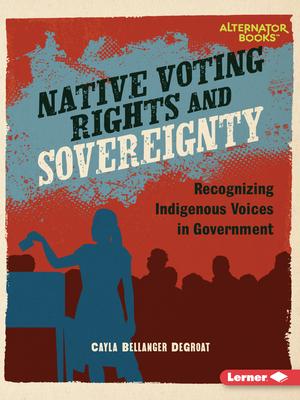There are 574 federally recognized nations with tribal sovereignty in the United States. Tribal sovereignty means that these nations must be honored as distinct political entities and treated as nations. In addition to the rights granted to them by those nations, their citizens are guaranteed civil rights as citizens of the United States, such as the right to vote, the right to use government services and public spaces, the right to education, and the right to a fair trial. All citizens of the US have civil rights, but for many Native Americans, it has been a struggle to have these rights affirmed and recognized. Trace the history of the struggle for Native rights from the 1924 Indian Citizenship Act to the current effort for Tribal identification cards to be accepted at US voting stations. Hear the stories of the Indigenous activists who fought for these rights and those who are still fighting to protect them.

Native Voting Rights and Sovereignty: Recognizing Indigenous Voices in Government
There are 574 federally recognized nations with tribal sovereignty in the United States. Tribal sovereignty means that these nations must be honored as distinct political entities and treated as nations. In addition to the rights granted to them by those nations, their citizens are guaranteed civil rights as citizens of the United States, such as the right to vote, the right to use government services and public spaces, the right to education, and the right to a fair trial. All citizens of the US have civil rights, but for many Native Americans, it has been a struggle to have these rights affirmed and recognized. Trace the history of the struggle for Native rights from the 1924 Indian Citizenship Act to the current effort for Tribal identification cards to be accepted at US voting stations. Hear the stories of the Indigenous activists who fought for these rights and those who are still fighting to protect them.